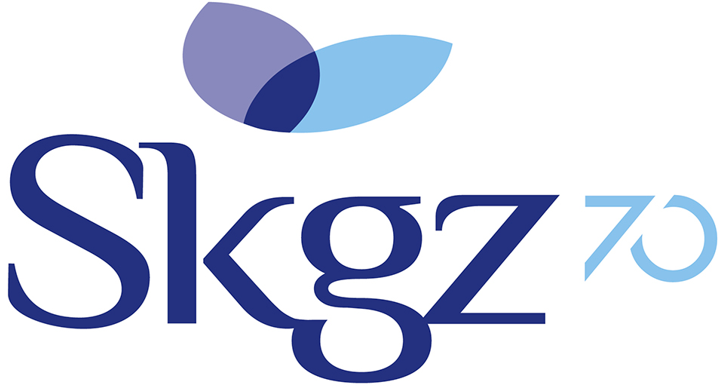
SKGZ and SSO handed in a memorandum to the Undersecretary of the Italian Government Alfredo Mantica
SKGZ’s President Rudi Pavšič and SSO s President Drago Štoka handed in the following memorandum to the Undersecretary of the Italian Government Alfredo Mantica:
*On behalf of the two most representative organisations of the Slovenian community in Italy (the Council of the Slovenian Organisations-SSO and the Slovenian Cultural and Economic Association-SKGZ) we would like to express our gratitude for today’s meeting in Rome, to which you have cordially invited us.*
*It is our duty to inform you about some issues affecting our national community, primarily about those outstanding issues arising from the statutory provisions of Article 6 of the Italian Constitution, of international treaties and of Italian Law no. 38/2001.*
*The Slovenian minority in Italy is primarily protected by Article 6 of the Italian Constitution, by the Statute of the Friuli Venezia Giulia Autonomous Region (Article 3), by the international treaties signed by the Italian government in the post-war period (the London Memorandum in 1954 and the Treaty of Osimo in 1975) and by various other international conventions about the political and legal protection of linguistic and ethnic minorities, which directly affect also the European configuration. Sir, after several decades of efforts and political commitments the Slovenian minority in Italy achieved to be protected under the Italian Law no. 38/2001, which celebrated its tenth anniversary on 23rd February of this year. In this decade some important steps have been made as regards the compliance with the provisions of this Act, but other articles have still to be implemented, not only in the field of culture, but also in the fields of social, political and economic interests. It has been planned to establish a working group of the highest representatives of the Slovenian minority in Italy and of the representatives of the Italian Government. We are confident, that this working group will definitely solve our outstanding issues, including those extremely important (e.g. the use of Slovenian language in public, school issues, etc.), while other minor, yet extremely important issues, will have to reach their final epilogue.*
**School education**
*In contrast with the general negative demographic trends, Slovenian schools have recorded a steady growth of enrolment. It would be appropriate to align the current legislation to the specific needs of the Slovenian minority school system.*
**School authorities** (Article 13)
*Article 13 of the Italian Law no. 38/2001 has not been fully implemented. Under this article it is provided the establishment of a specific office for the issues of the education in Slovenian language which will operate within the Provincial Office for Education of the Friuli Venezia Giulia Region and will be headed by a Regional Officer, appointed by the Minister of Education and selected among the management of the central and peripheral school administration and schools with Slovene as teaching language. This office will also be responsible for the allocation of staff to the schools and institutions with Slovene as teaching language.*
**The bilingual school in San Pietro al Natisone**
*Due to the uselessness of the current municipal building there is the risk that next year the school could be divided into smaller territorial units. The bilingual school of San Pietro al Natisone has the highest number of pupils among the schools of the Slovenian national community (more than 220 pupils).*
**Music education** (Article 15)
*Article 15 of the Italian Law no. 38/2001 has not been fully implemented. The article provides that within three months from the implementation of the above-mentioned Law the Minister for University, Scientific and Technological Research, in agreement with the Italian Treasury, shall establish an autonomous Slovenian department at the "Giuseppe Tartini" Music Conservatory of Trieste. The same Ministry shall determine the number and the responsibilities of the teaching, administrative, technical and service staff. Any transfer or career progression of staff members shall not be permitted for a period of three years. The current number of the permanent staff will not change for a period of three years, with the exception of the introduction of new courses, departments and Italian language course for foreigners.*
**Slovenian names, surnames and expressions** (Article 7)
*Article 7 of the Italian Law no. 38/2001 has not been fully implemented. Members of the Slovenian minority have the right to give Slovenian names to their children. Moreover, they have the right to have their surnames and names properly printed or written with the Slovenian spelling characters in all public acts. Most documents (passports, driving licenses, health cards, etc.) do not include Slovenian letters that are not included in the Italian alphabet (č, š and ž).*
**Slovenian dialects in the province of Udine**
*Regional Law no. 26/2007. We would like to inform you about the attempts to waive the typical local dialects of the Province of Udine, "as an expression of the cultural and linguistic richness of the Slovenian language." Some authorities and individual persons are trying to divide the Slovenian minority and deny the belonging of some communities to the Slovenian minority. On 10th February 2010 a group of Regional Councillors introduced a bill to support such considerations, which differ from the above-mentioned decree, signed by the Head of State.*
**Slovenian Permanent Theatre**
*The conditions of the Italian Fund for Entertainment, which are regularly met by the Slovenian theatre, but are rather burdensome, are as follows: 90 days of performances per year; 4000 working days (technicians and actors) for the theatres of linguistic minorities or theatres alongside the State border; at least half of the in-house performances shall be repeated 20 times; the European Union recognizes one third of the performances carried out in Italy (example: 3 performances in Italian theatres are recognized as one in Slovenia).*
**Return of property** (Article 19)
*Article 19 of the Italian Law no. 38/2001 has not been fully implemented. We are still expecting an appropriate solution that will allow our community to fully use the Narodni dom premises in Via Filzi and San Giovanni in Trieste and the Trgovski dom in Corso Verdi in Gorizia, which are currently still not available. A positive solution is expected only as regards the Trgovski dom in Gorizia and this is due solely to the intervention of the Friuli Venezia Giulia Regional Government.*
**Legal provisions on elections** (Article 26)
*Article 26 of the Italian Law no. 38/2001 has not been fully implemented. The Italian electoral laws for the election of the Members of the Senate and of the House of Representatives contain some provisions to facilitate the election of candidates belonging to the Slovenian minority. It is of outmost importance to rapidly adopt the appropriate measures to ensure this basic right of representation.*
**State financial contributions under the Italian Law no. 38/2001**
*Under Article 27 it is provided, that from the year 2002 onwards, the Slovenian minority in Italy shall receive an annual financial contribution of 20,567,000,000 lire (approximately 10 million Euros) and under Article 16 it is provided that the institutions of the Slovenian minority shall receive an annual contribution of 10 billion lire (this amount should be paid since 1992). This annual financial contribution has never been paid, as some articles of the Law have not been fully implemented (e.g. Article 13 – estimated annual contribution of 895 million lire and Article 15 – estimated annual contribution of 1,049 billion lire). We would like to underline, that since 2001 the Slovenian minority has been deprived of the expected contributions, while the State saved a few million Euros. Moreover, we would like to stress also the fact that the annual inflation rate has gradually decreased the real value of these contributions. So, if we consider the impact of inflation, we can affirm that from 1992 to 2010 the financial contributions for the institutions and cultural activities of the Slovenian minority decreased by at least 50%. This led the Slovenian minority to gradually reduce the range of its cultural activities, to "rationalise" its budgets, to reduce the number of employees and even shut down some premises. Therefore, we would like to propose a systematic solution to the financial issues of the Italian Law no. 38/01: ensure an annual contribution of 11 million Euros (20,567,000,000 lire), as stated in the Act itself since 2002.*
**Regional financial contributions**
*In 2010 the Regional Government wiped out the financial fund for the Slovenian minority. We would like to underline, that the Friuli Venezia Giulia Region is an Autonomous Region mainly due to the presence of the Slovenian minority.*
**Support for printed media**
*The specific financial contributions for the daily newspapers in Slovene and other minority languages under the provisions of the Italian Law no. 296/2006 are inadequate and this caused an important financial distress to the Slovenian daily newspaper Primorski dnevnik .*
**Institutional relations**
*With regard to the many unresolved issues we suggest to establish a working group within the Italian Government which will act as a coordinative body between the representatives of our minority and the various Italian ministries.*
